Running an exotic pet business is a unique and rewarding venture.
Whether you're caring for reptiles, birds, amphibians, or small mammals, the right team is essential to ensuring the animals receive top-notch care while your business thrives. Crafting a comprehensive staff plan is key to maintaining efficiency, meeting customer expectations, and providing specialized services. In this guide, we'll walk you through building a staffing plan for your exotic pet business, covering everything from budgeting to leveraging pet-care software for staff management.
Assessing Your Service Offerings
 Before you can hire the right team, you need to understand the services your business will provide. Different services require different skills and expertise, especially when dealing with exotic animals.
Before you can hire the right team, you need to understand the services your business will provide. Different services require different skills and expertise, especially when dealing with exotic animals.
Identifying Services Provided:
- Specialized Animal Care: Handling and caring for reptiles, birds, amphibians, and other exotic pets.
- Medical Assistance: On-site veterinary services or partnerships with exotic animal vets.
- Boarding Facilities: Providing safe, species-specific environments for short- and long-term stays.
- Grooming: Specialized grooming for birds, reptiles, and other exotic animals.
- Habitat Setup and Maintenance: Designing and maintaining custom enclosures for various species.
- Behavior Training: Offering behavioral consultation and training for exotic pets.
Determining Staffing Needs Based on Services:
- Animal Handlers/Technicians: Skilled in handling specific types of exotic pets.
- Veterinarians and Vet Techs: Specializing in exotic animal health.
- Groomers: Experienced in grooming unique species.
- Customer Service Representatives: Knowledgeable in exotic pet care and able to assist clients.
- Maintenance Staff: Ensuring enclosures and habitats meet safety and health standards.
Budgeting for Your Staff
Budgeting is one of the most critical steps in building your staff plan. It requires a clear understanding of your financial limitations and the costs associated with hiring, training, and maintaining a skilled team. Begin by estimating the salaries and wages for each role, keeping in mind that specialized positions like exotic animal veterinarians or handlers may command higher pay due to their expertise. Additionally, factor in the costs of ongoing training and certifications, as staying current with best practices in exotic pet care is essential.
Beyond salaries, consider employee benefits such as health insurance and paid time off, which are crucial for attracting and retaining top talent. Operational expenses, including uniforms, tools, and safety equipment, should also be included in your budget. To allocate resources efficiently, prioritize hiring for roles that directly impact animal care and consider part-time or freelance options for less critical functions. Offering internships or volunteer opportunities can be a cost-effective way to bring in enthusiastic individuals while managing your expenses.
Monitoring your cash flow regularly is essential to ensure you're operating within your means. By staying on top of your budget, you can make informed decisions that support both the growth of your business and the well-being of your staff.
Recruiting Specialized Staff
 Exotic pets require care from knowledgeable professionals. Hiring the right people ensures the safety and well-being of the animals and the satisfaction of your clients.
Exotic pets require care from knowledgeable professionals. Hiring the right people ensures the safety and well-being of the animals and the satisfaction of your clients.
Identifying Necessary Roles and Responsibilities:
- Exotic Animal Handlers: Expertise in handling specific species, understanding their behaviors, and ensuring proper care.
- Veterinarians and Vet Techs: Specializing in exotic animals with knowledge of species-specific health issues.
- Support Staff: This includes roles such as administrative assistants and customer service reps who understand the unique needs of exotic pet parents.
Sourcing Qualified Candidates:
- Job Boards and Professional Networks: Post on platforms specializing in animal care jobs.
- Partnerships with Veterinary Schools: Collaborate with institutions that offer exotic animal care programs.
- Social Media and Community Groups: Engage with exotic pet communities to find passionate candidates.
- Offer Training Opportunities: Attract talent by providing on-the-job training and certification programs.
Implementing Pet-Care Software for Staff Management
Managing staff efficiently can be challenging, especially when juggling multiple services and specialized care needs. This is where pet-care software becomes an invaluable tool. By streamlining scheduling and task management, you can ensure that every aspect of your business runs smoothly. Automated scheduling features allow you to assign shifts based on staff availability and expertise, reducing the likelihood of conflicts and ensuring that the right people are in the right place at the right time.
Task tracking capabilities help you monitor daily responsibilities, from feeding schedules to habitat maintenance, while reminders and alerts ensure that no task is overlooked. Centralized communication tools within the software keep your team connected, facilitating seamless coordination and real-time updates. This not only enhances efficiency but also fosters a collaborative work environment.
Training and Development
In the exotic pet industry, ongoing education and development are crucial. Continuous training ensures your staff stays updated on the latest care techniques and safety protocols.
Providing Ongoing Education:
- Workshops and Seminars: Regular training sessions on species-specific care and handling.
- Certifications: Encourage staff to pursue certifications in exotic animal care.
- Online Courses and Resources: Utilize online platforms for flexible learning opportunities.
Ensuring Compliance with Regulations:
- Local and Federal Regulations: Ensure your staff is familiar with permits and laws related to exotic animal care.
- Health and Safety Standards: Regularly review protocols to maintain high standards of care and safety.
- Documentation and Record-Keeping: Use software to keep detailed records of staff training and compliance.
Monitoring and Evaluating Staff Performance
 Regularly assessing staff performance is essential for maintaining high standards and fostering a culture of continuous improvement within your exotic pet business. Setting clear Key Performance Indicators (KPIs) provides measurable benchmarks that help you evaluate the effectiveness of your team. Metrics such as customer satisfaction scores, animal health outcomes, and task efficiency rates can offer valuable insights into how well your staff is performing.
Regularly assessing staff performance is essential for maintaining high standards and fostering a culture of continuous improvement within your exotic pet business. Setting clear Key Performance Indicators (KPIs) provides measurable benchmarks that help you evaluate the effectiveness of your team. Metrics such as customer satisfaction scores, animal health outcomes, and task efficiency rates can offer valuable insights into how well your staff is performing.
However, performance evaluation goes beyond just numbers. Regular check-ins and one-on-one meetings create opportunities for open dialogue, allowing you to discuss achievements, address concerns, and set future goals. Providing constructive feedback in a supportive environment encourages professional growth and helps staff feel valued and motivated.
Investing in your team's development is equally important. Offering professional development opportunities, such as additional training or certifications, not only enhances their skills but also contributes to the overall success of your business. By fostering a culture of continuous learning and feedback, you can ensure that your team remains engaged, competent, and committed to providing the highest level of care for your exotic pets.
Building a staffing plan for your exotic pet business is essential for delivering exceptional care and ensuring operational efficiency. By carefully assessing your services, budgeting wisely, recruiting specialized staff, leveraging pet-care software, and prioritizing training and performance evaluation, you can create a thriving business that meets the unique needs of exotic pets and pet parents.
Provide top-tier care with Revelation Pets. Get a free trial now!






